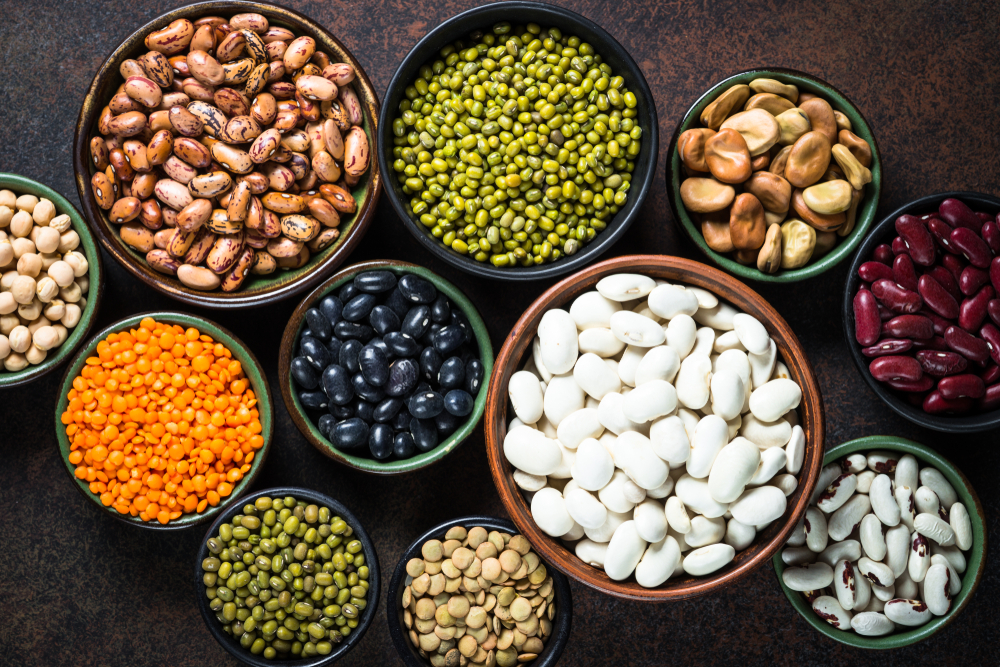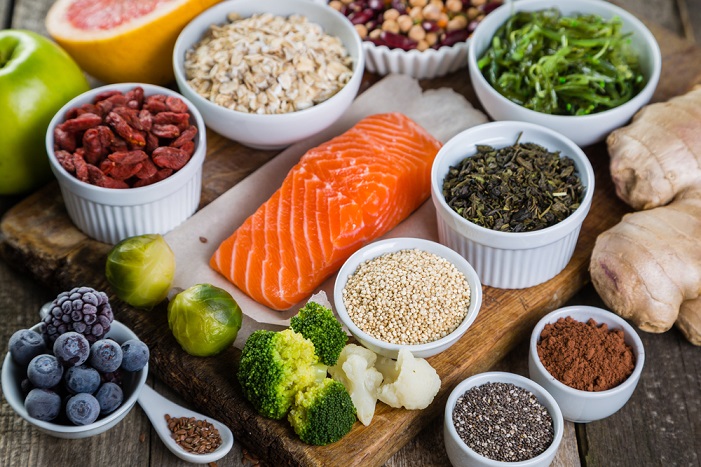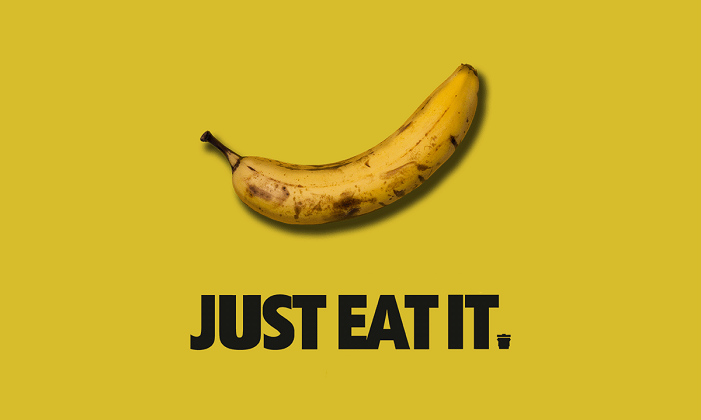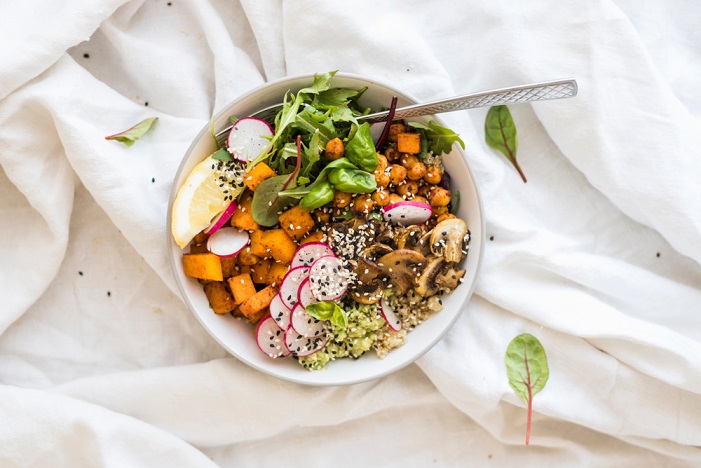Beans are considered a superfood because they have many nutritional benefits and can help reduce risk for heart disease, diabetes, cancer, and obesity all while being gluten-free, vegan and vegetarian friendly, and relatively low cost.
Whether you’re cooking keto meals for yourself or looking for someone else to do that for you, sometimes you just need to know if a food is safe to eat on keto. For beans that means…
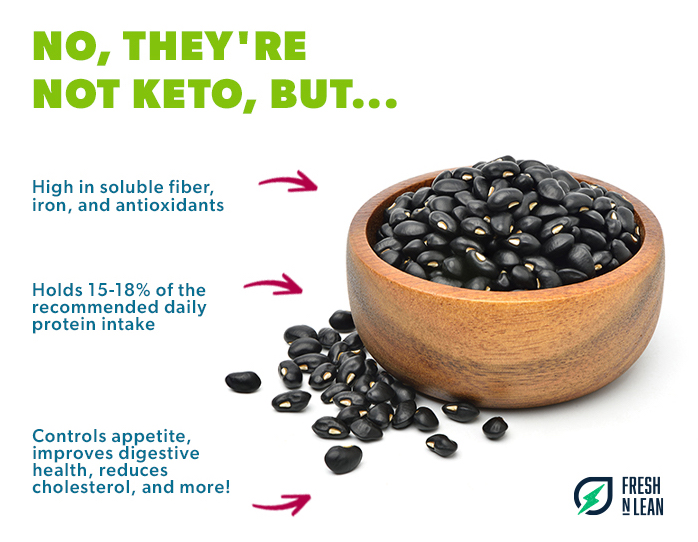
Table of Contents
Why Are Beans Not Keto Friendly?
– The Lowest Carb Bean for Keto
– Other Types of Beans
High-Protein, Low-Carb Keto Alternatives to Beans
Plant-Based Protein Alternative to Beans
Why Are Beans Not Keto Friendly?
Because keto is a low-carb, high fat diet, and most types of beans fall into high-carb categories, they are not best suited for a ketogenic diet. Though the range can vary, one serving of any type will likely take up a large chunk of your daily carbohydrate allowance.
Here is what the carbohydrate content for a cooked, single serving (about 1/2 cup) of the most common types of beans looks like:
Mung Beans
Fiber: 7.7g
Total Carbs: 19.4g
Net Carbs: 11.7g
Fava Beans
Fiber: 4.5g
Total Carbs: 16.5g
Net Carbs: 12g
Black Beans
Fiber: 9g
Total Carbs: 19.4g
Net Carbs:11.7g
Pinto Beans
Fiber: 7.5g
Total Carbs: 22.5g
Net Carbs: 15g
Lima Beans
Fiber: 4.5g
Total Carbs: 20g
Net Carbs: 15.5g
Garbanzo Beans (Chickpeas)
Fiber: 6.3g
Total Carbs: 22.5g
Net Carbs: 16.2g
Kidney Beans
Fiber: 6.4g
Total Carbs: 22.8g
Net Carbs: 16.4g
White Beans
Fiber: 5.5g
Total Carbs: 22g
Net Carbs: 16.5g
SUMMARY
Most of the common types of beans are off-limits on keto. A half cup serving can range from 11-16g of carbs, which can use up a good chunk of your carb allowance for the day.
The Lowest-Carb Bean for Keto
Referencing the list above, mung beans are the most keto-friendly beans to eat but depending on the type of keto diet you’re following (yes, there are different types!), all the above may be off limits!
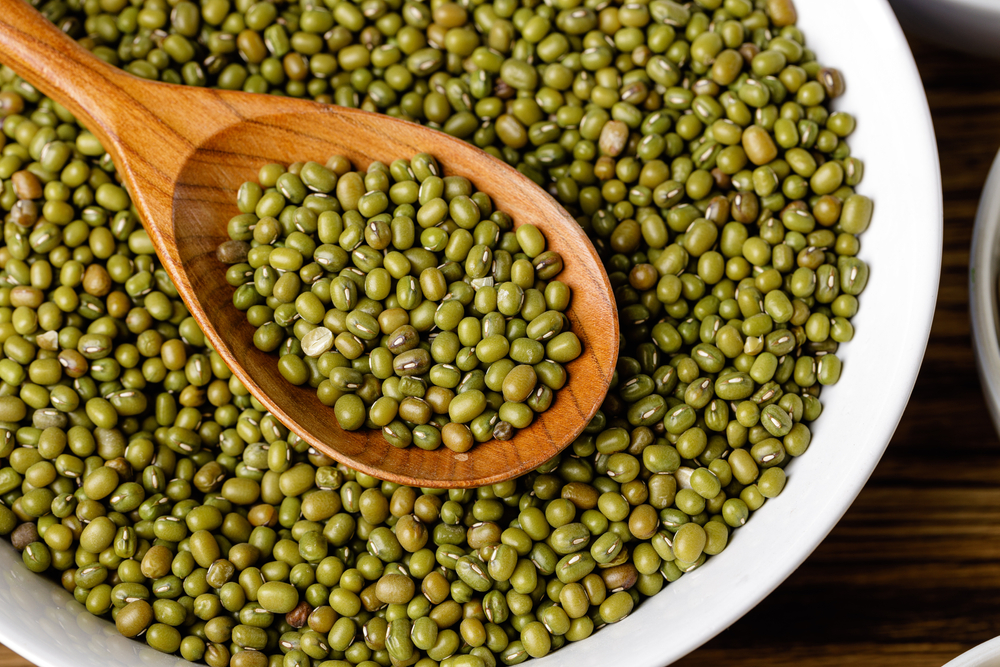
Other Types of Beans
While we’ve so far been talking about the types of beans that usually come to mind, there are other kinds of beans that you might still have keto-related questions for.
Are other kinds of “beans,” like green beans, coffee beans, cocoa beans, or soybeans, keto? The answer is some are, and some are not.
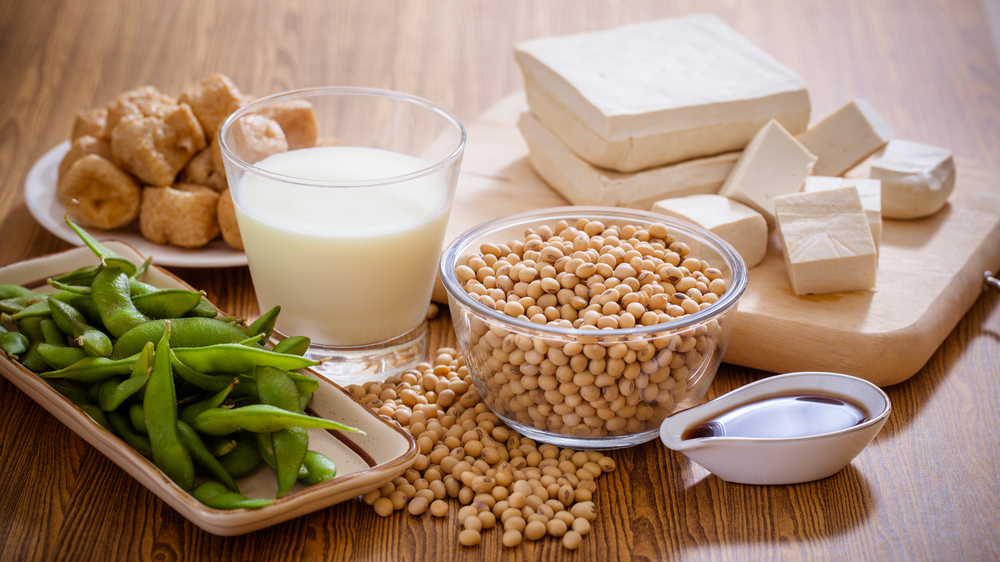
A half cup of cooked green beans has about 3g of net carbs, making them a very healthy and low-carb option for your keto diet, while soybeans (or edamame) have about 7.5g of net carbs. However, many soy-based products will have varying carb content. For instance:
1 cup of soy milk: 13.5g net carbs
1 serving (3.5oz/100g) tofu: <2g net carbs
1 serving (3oz/85g) tempeh: 16g net carbs
A single, 1 cup serving of black ground coffee beans have virtually no carbs but eating whole coffee bean snacks (especially chocolate-covered ones!) can have upwards of 15g of carbs per ounce! Chocolate covered snacks like coffee beans can have even more carbs is thanks to cocoa beans, which translate to about 15g of carbs per 1oz of dark chocolate or 9g net carbs for plain cocoa beans.
SUMMARY
Other kinds of beans like green beans, brewed ground coffee beans, and soybeans are relatively low in carbohydrates depending on how they are prepared. Soy products like tempeh or soy milk, and chocolate-covered coffee beans can skyrocket your carb total quickly if you aren’t careful!
High-Protein, Low-Carb Keto Alternatives to Beans
The good news about all this is that there are PLENTY of low-carb, high protein options that you can eat to help up your protein and give you all the nutrients you need to stay healthy while abstaining from beans.
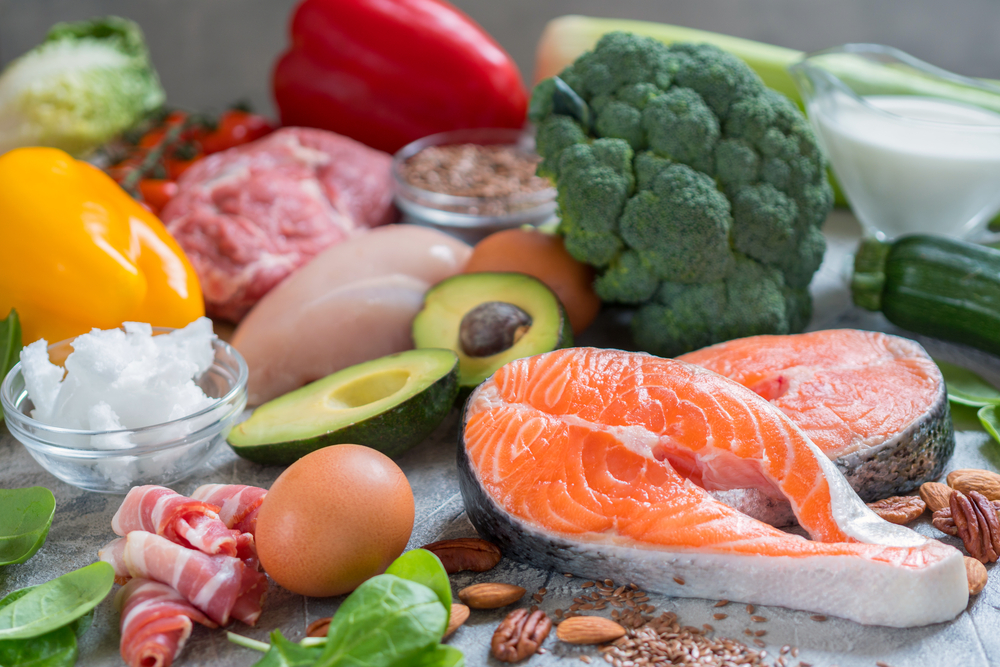
While beans have the benefit of being both high in protein and high fiber, there are individual foods that can come together to fulfill their nutritional needs. These can include:
· Ground turkey, chicken, or beef – High protein, low fat
· Flax and chia seeds – Low carb, high fiber
· Cottage cheese – High protein, low sodium
· Nut butters – High protein, full of healthy fats
· Greek yogurt High protein, packed with probiotics
· Salmon and tuna – High protein, rich in Omega 3 fatty acids
· Eggs – High protein, low cholesterol
· Blackberries and raspberries – High fiber and antioxidants
· Coconut – High fiber, rich in copper and antioxidants
· Cauliflower – High fiber, rich in Vitamin C and B-vitamins
· Red Cabbage – High fiber, good source of essential micronutrients and Vitamin K
Alternatives that work as strong replacements in recipes that call for beans (like they do for this Easy Keto Chili) can include:
· Tofu
· Mushrooms
· Zucchini
· Peppers
· Asparagus
· Jicama
· Okra
· Eggplant
SUMMARY
Eating other low-carb foods high in protein and fiber can provide the same nutritional benefits of beans. There are many plant-based sources that can also work in recipes that call for beans as an ingredient.
Plant-Based Protein Alternatives to Beans
Eating a plant-based diet doesn’t mean you have to go fully vegan or vegetarian. Incorporating more plant-based foods or plain ol’ delicious whole vegetables and fruits into your everyday diet has a number of health benefits like lower blood pressure, lower cholesterol, healthy weight loss, and lower risk of developing cancer.
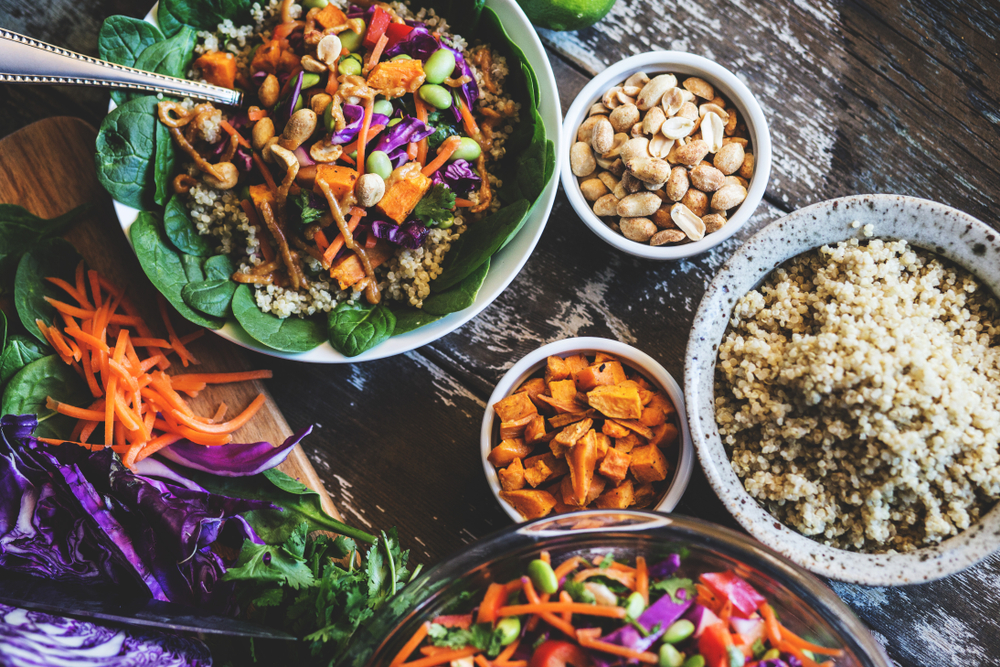
But either way, whether you’re a practicing vegan venturing into keto, or just trying to eat more whole foods, finding non-animal products full of protein is easy. Try these on for size!
· Tofu (3oz) – 1.6g net carbs / 7g protein
· Avocados (100g) – 8.5g net carbs / 2g protein
· Beyond Meat (1 patty) – 5g net carbs / 20g protein
· Broccoli (1 cup) – 4.6g net carbs / 2.6g protein
· Peanut butter (2 Tbsp) – 4.1g net carbs / 8g protein
· Hemp hearts (3 Tbsp) – 1g net carbs / 10g protein
Plant-based protein powder – varies depending on brand. Vega’s Sport Vanilla Protein powder has about 2g of carbs and 30g of protein per serving.
Plant-based milks – varies depending on brand. Ripple’s Unsweetened Plant-Based Milk has 0 carbs and 8g of protein per cup.
(Note: Explore more plant-based protein options here!)
SUMMARY
Eating more plant-based foods like whole vegetables can help prevent cancer and cardiovascular issues, while still providing keto-friendly high protein selections.
